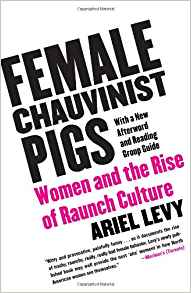Ariel Levy is the author of the new memoir The Rules Do Not Apply. Her publisher, Random House, describes it as "the story of how she built an unconventional life and then watched it fall apart with astonishing speed." Levy also has written Female Chauvinist Pigs and edited The Best American Essays 2015. She is a staff writer at The New Yorker.
Q: Why did you decide to write this memoir?
A: Because the story it tells is one I'd be interested in if I heard it about someone else—many of the issues I've been writing about for 20 years come into play. I decided not to disqualify this story just because it was my own.
I also liked the idea of trying to tell the exact truth, to the best of my ability, about things I had witnessed and experienced. Usually, my stories are reported, which is to say I'm piecing together the truth based on the memories and observations of other people. This was all on me.
Q: You describe some very painful and heartbreaking experiences in your book. How difficult was it to write about these issues?
A: Talking about these things now that the book is out can be difficult, but writing about them felt very natural and somewhat comforting. I was grieving anyway, so writing about what I was thinking and feeling certainly didn't make that worse.
I've always written about everything that went on in and around me, since I was a little kid. So this was no different in the writing, it was just different in that I published it.
Q: How was the book's title chosen, and what does it signify for you?
A: I was thinking about the rules that my mother—and certainly her mother—had to follow that were simply inapplicable to my life. I was never told I had to be a wife and mother, for instance, and both of them grew up with that explicit expectation.
Q: You've written for many years on issues affecting women. What do you see looking ahead in the U.S., given the current administration?
A: Oh jeez. These are dark days. We all know the person running the free world thinks it's acceptable to brag about sexually assaulting women, and, unsurprisingly, his administration is doing its best to undermine women's health and put in place policies that will penalize the poor and disproportionately affect women.
Q: What are you working on now?
A: My garden!
Q: Anything else we should know?
A: The lesson I learned from going through so much loss all at once was that control is an illusion. That's something I'm grateful to know—it's strangely liberating.
--Interview with Deborah Kalb




No comments:
Post a Comment